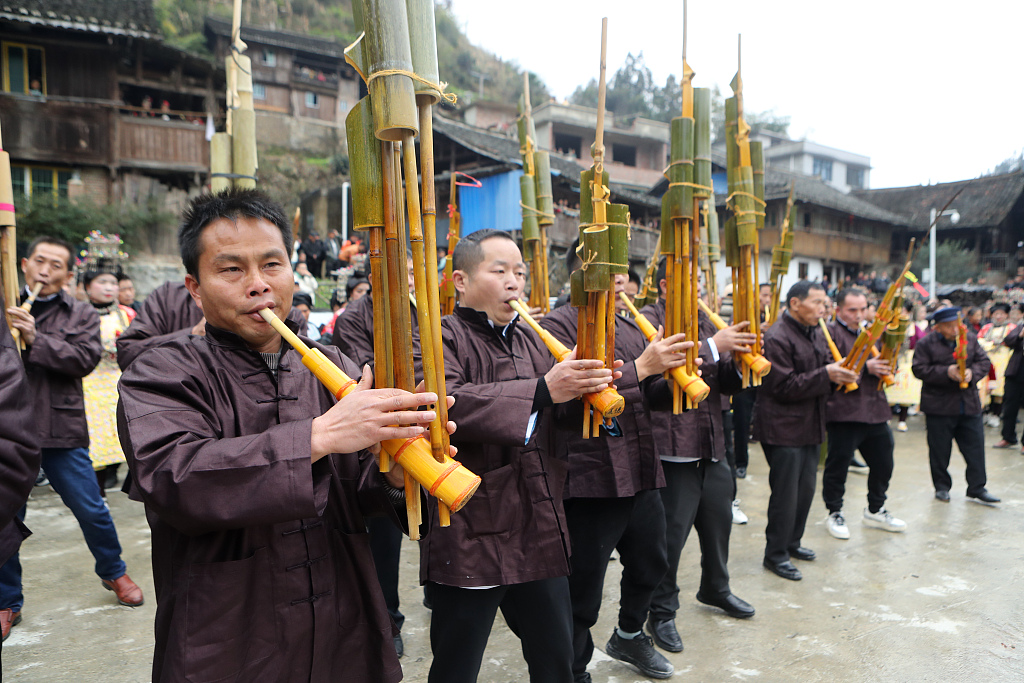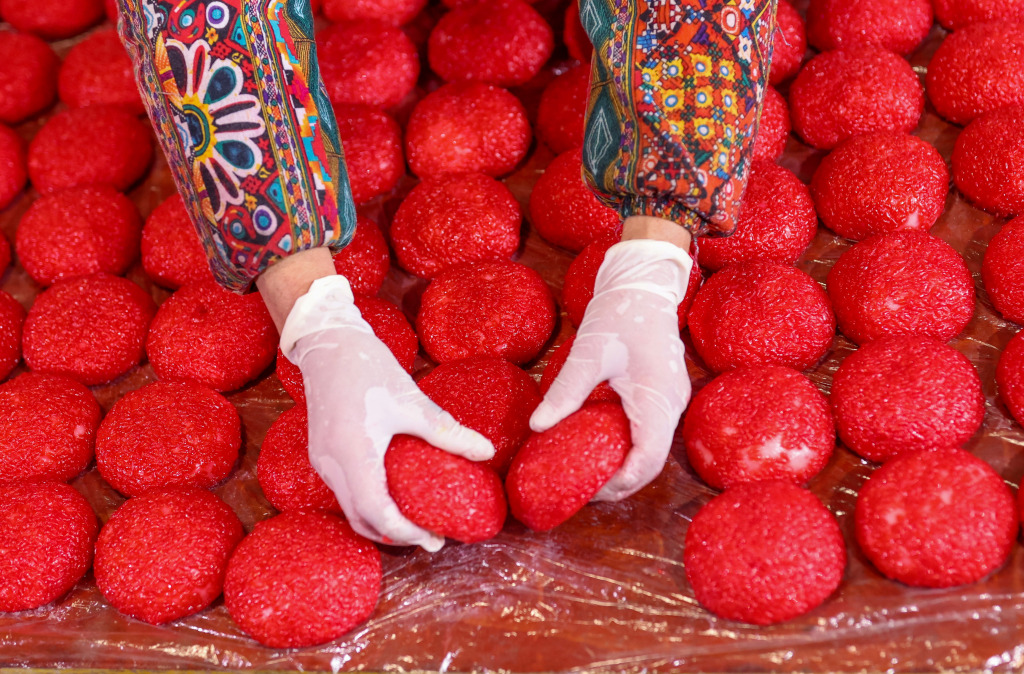
Dong people play the lusheng, a traditional musical instrument, to celebrate Dong New Year in Qiandongnan Miao and Dong Autonomous Prefecture, Guizhou Province, January 11, 2024. /CFP
Dong New Year Festival is a traditional event that pays homage to the ancestors of Dong people while celebrating family reunions. Dong people use this festival to mark the end of the busy autumn harvest and hold celebrations to enjoy the leisure time that follows.
Dong New Year is celebrated at different times of the year depending on the traditions of Dong people in different areas. Most of the celebrations fall in December, lasting a week or even longer.
As one of the ethnic groups of China, the Dong people are said to be the descendants of the ancient Guyue people, with a history of 2,500 years. The festival was included on China's list of national-level intangible cultural heritage in 2011.

Two Dong girls dressed in beautiful attire help each other to arrange hair decoration pieces in Qiandongnan Miao and Dong Autonomous Prefecture, Guizhou Province, January 11, 2024. /CFP
The annual Dong New Year celebrations feature a series of traditional customs and activities that start with dressing up. Men and women will dress up in their best outfits and accessories.
Dong people are also famous worldwide for their "Grand Songs" performance, which is a traditional polyphonic style of choir singing.
The "Grand Songs" performance is an essential part of Dong culture, consisting of multiple singers singing different harmonies without a conductor or musical accompaniment. Dong choir performances and competitions are arranged for festivals or to welcome honored guests, and the songs mainly focus on nature, love, friendship, and farm work.

Singers gather in circles for a "Grand Songs" performance for residents and tourists in Qiandongnan Miao and Dong Autonomous Prefecture, Guizhou Province. /CFP
The "Grand Songs" performance of the Dong ethnic group was inscribed on UNESCO’s Representative List of the Intangible Cultural Heritage of Humanity in 2009.

Children learn how to make ciba, a sticky rice cake, in Congjiang County, Qiandongnan Miao and Dong Autonomous Prefecture, Guizhou Province. /CFP
During celebrations, they also make ciba, a kind of sticky rice cake, as a treat for locals and visitors alike. People dye the cakes with red food coloring to give them auspicious meanings.

Dong people make red ciba in Tongren, Guizhou Province, January 7, 2024. /CFP
Editor Ⅰ: Zhang Wenwen
Editor Ⅱ: Wu Dan
Editor Ⅲ: Liu Guosong














